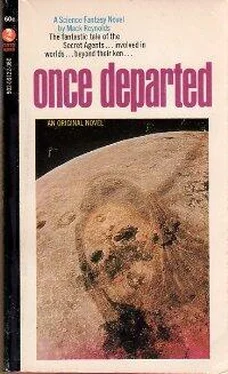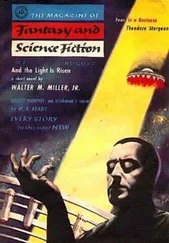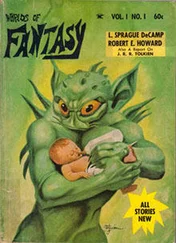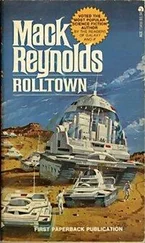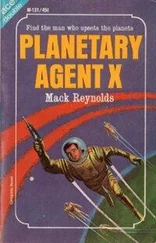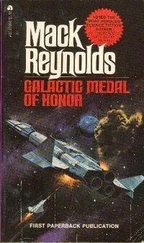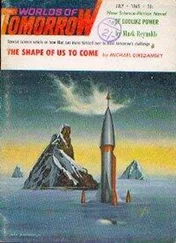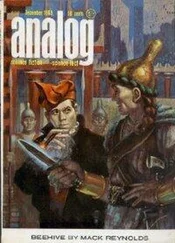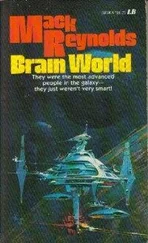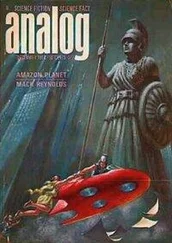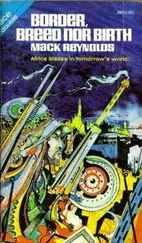“If I get that correctly, you want me to work with you on this Martin Bormann, Doktor Stahlecker thing.”
“Of course, we are not admitting any such far-fetched story. However, consider, Mr. Jones. The Spanish government today is greatly interested in fuller cooperation with the Common Market and other Western institutions, such as NATO. If, I say if , such a prominent former Nazi as Martin Bormann was found to be in hiding in Spain, then such nations as France and Great Britain might, ah, to use your inimitable slang, take a dim view of the fact.”
“So,” Quint said dryly, “where your former pals were welcome, immediately following the war, you’re now willing to sell them down the river—always supposing you can find them.”
Garcia said stiffly, “I wouldn’t put it that way. All I am doing is offering you the friendship of our authorities, in return for your cooperation in this matter. We are as anxious to find Bormann as is your C.I.A., Mr. Jones. It seems obvious that all involved should cooperate.’
“So how could I cooperate, assuming that I decided to?”
The Spanish operative leaned forward. “First of all, what is the purpose of this party to be held at Miss Worth’s apartment, tomorrow night?”
For all Quentin Jones knew, in spite of the other’s claim to wish to grab Bormann for the purpose of handing him over to the Western powers, Jose Garcia might actually be bosom buddies with the ex-Nazi. He knew nothing at all about the man, beyond the fact that he obviously was connected with the Spanish secret police.
“Why don’t you ask Miss Worth?” he said.
Garcia came to his feet, his eyes icy. He ran a thumbnail over his neat mustache. “I see you do not wish to cooperate, Mr. Jones. I suggest you think it over. If you did work with us, reveal what you know, then obviously there would be no need to deliver this persona non grata order.”
Quint began walking toward the door, to open it. He said over his shoulder, “Believe me, remaining in Spain isn’t that important. I never was happy about countries that ordered writers out the moment they had opinions differing from the government’s. We seldom do it in America. A Spanish columnist could move to Washington and sit there beefing about our president’s policies until hell froze over, and nobody’d give a damn.”
“You’ll be sorry about this…” Garcia began.
“Goodbye, Buster,” Quint said wearily.
It was the second caller who had a hard time getting in. He had even evidently had a hard time getting past Francisco, the portero, since that worthy had escorted him all the way to Quint’s door.
Quint held the door only partly open. He said, Gracias, Francisco” and to the other, “Mr. Nuriyev, I believe?”
The other was ever suave. He clicked heels and bowed. “Valadimir Nuriyev. I would appreciate the opportunity to talk with you, Quentin Jones.”
Quint thought about it. Finally, he said, “Just a moment,” and closed the door. When he returned, he opened it more widely, so the other could enter. He tipped Francisco fifty pesetas and let him go.
Quint said to the former Russian hachetman, as he led him back into the living room, “Just for luck, I phoned Mike Woolman of World Wide Press. I told him you were here, and that I’d phone back every five minutes as long as you remained.”
The Russian’s eyebrows went up and his lips quirked in amusement. “Excellent security precautions, Mr. Jones.” His eyes took Quint in. “However, it would seem to me that since I am alone, I am quite as much in danger as you are.”
Quint stepped up to him quickly and ran his hands over the other’s clothes. Here, there, where a man carries a gun or other weapon. The Russian suffered the invasion of privacy without protest. “Once again, excellent security precautions, Mr. Jones. May I take a seat?”
“Drink?” Quint said, motioning to a chair.
“Not to be ah, corny, but do you have vodka?”
“Corny, yet,” Quint winced. “We have another would-be American slang user with us. I’ve got some Polish Vodka.” He went over to the bar.
Vladimir Nuriyev said mildly, “You must be referring to our mutual friend, Joe Garcia.”
The American was pouring a stiff shot of the colorless liquor. “What do you want to mix with this liquid dynamite?”
“There is an old Russian saying that nothing mixes with vodka, except vodka,” Nuriyev said.
Quint poured a very short Fundador for himself and returned to the other with the drinks.
’To peace!” the Russian said and bolted his back.
“Yeah?” Quint said, following him, “And that seems to be about as close as our countries get to real peace—toasting it at international conferences.”
“A deplorable situation,” Nuriyev nodded. He still reminded Quint Jones of one of Hollywood’s ultra-sleek villains. The man was a stereotype.
The Russian crossed his legs, adjusting his trousers neatly. He said, “I have read a considerable number of your columns, Mr. Jones. Believe me, I have been impressed.”
Quint nodded his thanks.
“It is obvious that you do not subscribe to the warmongering philosophy of some of your colleagues.”
“Oh?”
“Indeed, over the years I have noted that you are invariably in the ranks of the progressives. You have been opposed to making an armed camp of the world. Opposed to racism, both in your own country and such nations as South Africa…”
“And even Russia when there are signs of it there,” Quint said dryly.
Nuriyev went on, although his eyes had shifted slightly at that. “You have opposed your country’s support of such despots as King Faisal, and such dictators as Salazar…” he cleared his throat gently here “… and the Chief of State of this land in which we both now find ourselves. You have written against some of the overt actions of your C.I.A. in the smaller countries…”
“And the overt actions of the Russian KGB in the same circumstances,” Quint said. “Let’s get to the point, Nuriyev.” He picked up the phone, dialed, and said into it, “We’re still talking, Mike. So far the conversation involves what a great columnist Quentin Jones is.” He hung up again.
The Russian’s mouth tightened only for a moment. He said, “My point is that you are obviously opposed to many of the positions held by the West.”
Quint nodded. “I sure am. Praise Allah, I’m a citizen of a country where you’re still allowed to disagree with some of the positions the government takes.”
This time Nuriyev hesitated before going on. He found words, at last, and said carefully, “I trust you are opposed to the reintroduction into the government of West Germany of former Nazis?”
“I’m opposed to Nazis, period, anywhere,” Quint said in acid.
“And you must, then, be distressed to see judges, army heads, officers, even men of cabinet rank who are former Nazi party members.” He twisted his mouth. “Let us even say they might still be Nazi party members.”
“Seems unlikely,” Quint said wearily. “But yes, I’m not particularly happy about the boys getting back into power. Drop the other shoe, Nuriyev.”
“Very well. We have evidence that Martin Bormann still lives and that there is a conspiracy to bring not only this foul beast but many of his close collaborators back into power.”
“Who’s we?”
“Democratic elements opposed to the revival of Hitlerism.”
“I doubt it,” Quint said. He leaned forward and pointed a finger. “Look here, Nuriyev. It’s no use wasting each other’s time. You’ve misread what you found in my columns. You communists like to present yourselves as the only advocates of peace. The only ones against race discrimination, the protectors of small nations, and the foes of colonialism. Great, it makes wonderful propaganda for you. However, you make a mistake in thinking that everyone else who is for peace, minority rights and such, are sympathetic to Russia. Count me out. Even though I’m opposed to former Nazis in government. Just as much, by the way, in East Germany, as West Germany.”
Читать дальше
